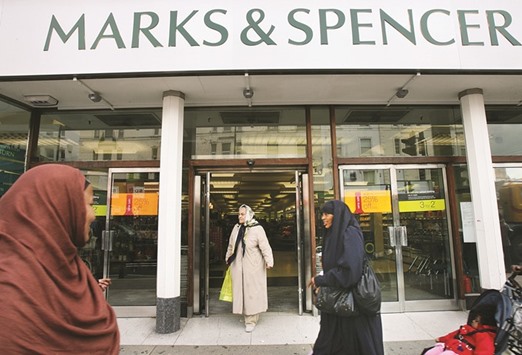Amid Brexit-fuelled uncertainty, London is trying to do its best to stay afloat as one of the most important hubs for Islamic finance in the Western world. In a presentation at the London Stock Exchange last week, officials of the bourse reiterated that London “continues to be an established Western centre for Islamic finance and has been at forefront of key developments in Europe.”
Indeed, the UK capital plays an important role for the existence and growth of Islamic finance outside the Muslim world. To date, British regulator Financial Conduct Authority has authorised five fully-fledged Islamic banks, one Shariah-compliant hedge fund manager and one dedicated takaful provider in the UK.
There are over 20 banks providing Islamic financial services in “banking windows,” more than in any other European country. They benefit from the depth and liquidity of London’s capital markets, the large pool of expertise offered by one of largest concentrations of legal, regulatory and tax specialists and Islamic finance experts and financial engineers. The UK government is also committed to offering open competition between conventional and Shariah-compliant financial products with a large number of regulatory adaptations. London also offers a flexible and attractive tax structure for facilitating Islamic finance.
Furthermore, the London Stock Exchange is a key global venue for the issuance of Islamic bonds, or sukuk, according to the presentation, which noted that more than $46bn has been raised through 64 sukuk issues on the London Stock Exchange since 2007. This includes the UK’s first own issuance of a sukuk in 2014, seen as a big step forward in helping to cement the city’s strong position in the Western Islamic finance industry.
The range of Islamic finance products offered at the London Stock Exchange is broad and includes the FTSE Shariah Global Equity Index Series, designed for Shariah-compliant investment products that meet the requirements of Islamic investors globally. Another product group, the Russell Islamic Global Indexes, is a complete global equity market index compilation that reflects established Shariah investment guidelines in a pool of more than 10,000 securities.
The London Stock Exchange also offers four Shariah-compliant Exchange Traded Funds based on Islamic indices, and four Islamic finance institutions are quoted on the exchange’s Alternative Investment Market, namely Islamic Bank of Britain, European Islamic Investment Bank, The Family Shariah Fund and Shariah Capital.
The foundation of the strong Islamic finance industry in the UK is the country’s considerably large Muslim population, which makes 4.5% of the nation’s total. More than 1mn of the 2.8mn Muslims living in the UK reside in London.
However, the question is whether London will be able to maintain its strong footprint in Islamic finance in the West when it eventually leaves the European Union. Opinions on that issue differ, with Islamic banks in London so far downplaying the risk and saying they are conducting “business as usual.”
Experts say that one of the biggest drawbacks of Brexit for the entire UK banking industry will be the loss of “passporting” privileges that allow UK banks to access the single EU market without restrictions. Another issue is legal uncertainty for existing Islamic banks over to what extent current banking and financial regulations – which have largely been influenced by EU law – will change.
On the other hand, much depends on the extent to which Muslim investors and institutions have used the UK as a gateway to enter the EU market and how much they would lose from Brexit or gain if the relocate their investment business to the EU.
“Although many Middle Eastern-owned banks have an exposure to the UK Islamic finance industry through their UK subsidiaries, we do not get the impression that London is a springboard to major cross-border EU Islamic-compliant deals,” says Jonathan Lawrence, partner in the London office of global law firm K&L Gates.
He also notes that alternative Islamic finance centres in the EU such as Luxembourg, the Netherlands and Ireland do no offer the comprehensive investment opportunities of London, for example its vibrant real estate market.
That said, it seems that most fundamentals that are important for Muslim investors and Islamic banks in the UK will likely not change after Brexit, making a farewell of the UK from the EU less awkward for them. If the UK government keeps its favourable tax environment and Islamic finance incentives, and considering falling UK real estate valuations and the low pound-to-US-dollar exchange rate, the attraction of London for Middle Eastern investors and with it the Islamic finance industry could be here to stay.

Shoppers pass by a Marks & Spencer shop in central London (file). The foundation of the strong Islamic finance industry in the UK is the country’s considerably large Muslim population, which makes 4.5% of the nation’s total. More than 1mn of the 2.8mn Muslims living in the UK reside in London.
